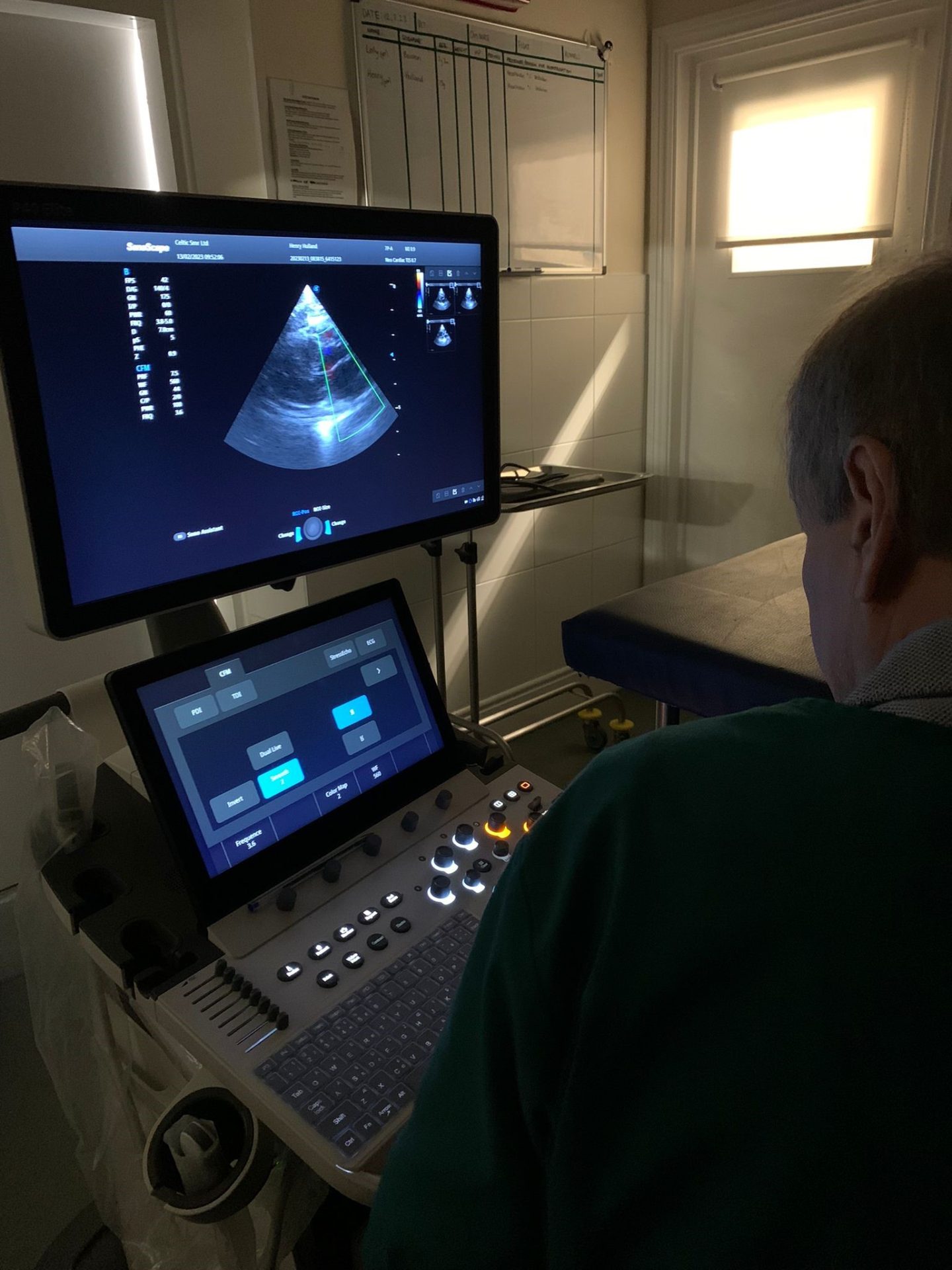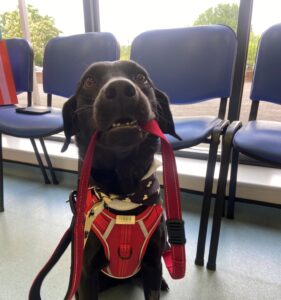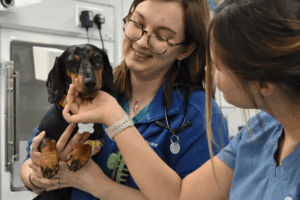Veterinary Cardiology at St Kitts Vets
Vet Steve Williams and the team at our Hartley Wintney practice have been providing cardiology services for our patients for the last 10 years. Steve has a particular interest in veterinary cardiology and has undergone extensive training in the area, including both practical courses and online study. He is keen to see any veterinary cardiology cases from cats and Chihuahuas through to Great Danes.
All cardiology investigations are performed using modern specialist equipment, including high quality ECG, X-rays and ultrasound. With this equipment, we can:
- Produce good quality images of the heart
- Measure the chambers of the heart and blood flow rates within it
- Study blood flow through the valves using colour flow doppler capability
Our team are able to diagnose the cause of most heart problems that are seen in general practice, including:
Mitral Valve Disease
Mitral Valve Disease is condition where degeneration of the valve on the left side of the heart leads to backwards leakage of blood. This can cause a heart murmur heard by a vet during examinations. It’s the most common type of heart disease in dogs and is especially prevalent in small breeds such as the Cavalier King Charles Spaniel.
Dilated Cardiomyopathy
Though it’s less common, we do see cases of dilated cardiomyopathy, which typically affects larger breeds of dog such as Dobermans and Irish Wolfhounds. The condition causes the heart muscle to become thin, weak and floppy.
Hypertrophic Cardiomyopathy
Hypertrophic Cardiomyopathy is the most common type of heart disease found in cats, where the heart muscle becomes abnormally thick and causes the chambers inside to narrow. It makes it difficult for the heart to pump blood properly and can lead to an irregular heartbeat. The disease can also cause blood clots to form inside the heart.
Despite the increasing use of ultrasound in veterinary cardiology, other diagnostic treatments remain incredibly important. X-rays are often used to fully evaluate the chest and can offer more information about the lungs, whereas ECG can be an essential tool to diagnoses cardiac diseases that affect the heart’s rhythm. One such disease that is not uncommon in the patients we see is Atrial Fibrillation.
As part of our offering to patients, we can set dogs up with Holter ECG Monitors which are worn in a jacket to record the heart’s rhythm over longer periods at home.
All vets within our group are in regular contact with Steve regarding heart cases. If your pet is seen at another practice, it is straightforward to arrange a referral to him should it be needed. Please get in touch with your local practice if you have any concerns about your pet.





